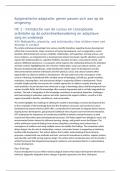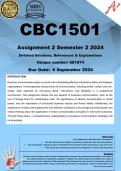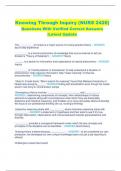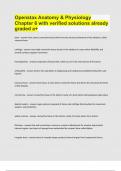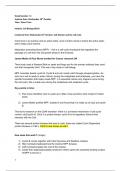Samenvatting
Samenvatting van de literatuur van de cursus Inclusief Onderwijs en Passende Zorg
- Instelling
- Universiteit Utrecht (UU)
Dit document bestaat uit een samenvatting van de literatuur van de cursus Inclusief Onderwijs en Passende zorg. De literatuur bestaat alleen uit artikelen. De artikelen zijn samengevat in dezelfde taal als dat ze geschreven zijn. De literatuur van hoorcollege 3 (Lichtverstandelijke beperking) zit e...
[Meer zien]
